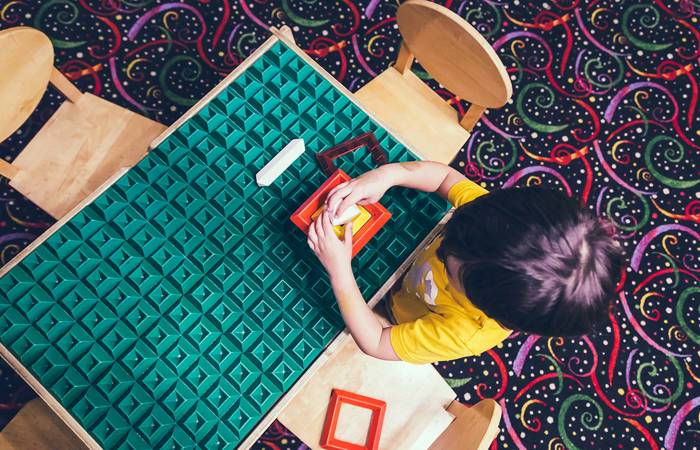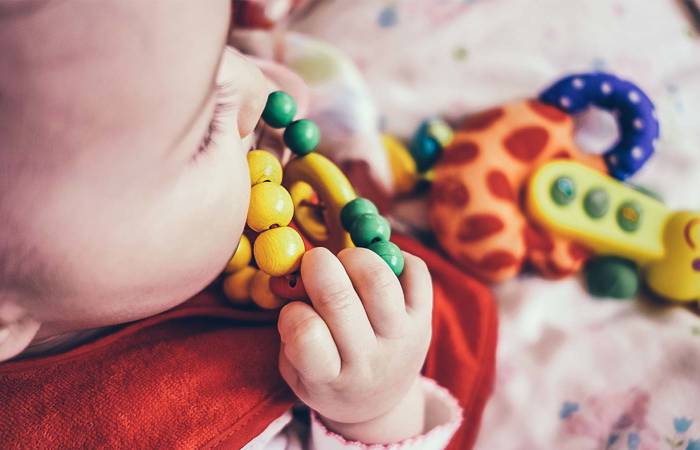Like what you see?
Sign up to receive more free parenting advice.
Thank you for subscribing to our newsletter!
Child Development

Credit: iStock.com/pangoasis
In world first, Australian researchers are using brain imaging to try to better understand why some autistic children develop typically in their first couple of years, before showing a drastic loss of skills.
Heartbreakingly for parents, their engaged, talkative child can suddenly stop responding to their name or even, in many cases, stop talking altogether.
Loss of Skills project
Autism researchers from Melbourne’s Murdoch Children’s Research Institute (MCRI) are running a ‘Loss of Skills’ project, which seeks to explain why some children develop typically in the first two years of life, but then experience severe and rapid loss of skills, including speech. A process which can occur over just a few weeks.
The Loss of Skills project already uses behavioural assessments, biological samples and genetic testing to make sense of this sudden skill loss, but speech pathologist and MCRI post-doctoral research fellow Veronica Rose will introduce neuroimaging to the project.
“The classic age is in the second year of life, by which time children have established some talking, they’re quite interactive with other people and then, fairly quickly over the course of four to six months, the child becomes uncommunicative, disengaged and loses language,” Dr Rose says.
“It is shattering for parents to watch and impacts significantly on the child’s neurodevelopment.”
Neuroimaging techniques
Melbourne-based autism awareness and fundraising charity BioAutism has awarded Dr Rose an Integrative Fellowship, committing $100,000 over three years so that she can gain skills in neuroimaging from another research group led by MCRI developmental neuroscientist Dr Marc Seal.
“The tools we use to characterise children with autism - such as behavioural, social and learning skills assessments - are fairly crude instruments and don't tell us what the brain is doing structurally and functionally,” Dr Rose says.
“These neuroimaging techniques will give us a window into what is actually happening because – particularly for children at the less able end of the spectrum who are not necessarily communicating or following instructions – we need to look for innovative ways to figure out how their brain is functioning.”
Regressive autism
More than two per cent of Victorian children up to the age of 11 are diagnosed with autism, with 30 per cent of those said to have lost language and social skills over time. The Loss of Skills project is recruiting children up to age seven who have experienced rapid loss of skills in infancy to toddler years.
Regressive autism is diagnosed when a child with reportedly typical development shows sudden, drastic loss of skills.
While it is commonly identified by parents, health care professionals and routine development surveillance – such as maternal health checks - Dr Rose says the causes are not well understood.
“Seemingly out of the blue, parents notice changes in their child’s development whereby the child that was talking uses fewer words and in many cases stops talking altogether, stops responding to his or her name and there is a significant decrease in overall back and forth social interest and engagement,” Dr Rose says.
“This is incredibly devastating for parents who can recall when their child was socially engaged and interactive before suddenly watching their child withdraw into themselves.”
Following this devastating cascade of events, the child is subsequently diagnosed with regressive autism.
Currently, play-based behavioural assessments looking at children’s thinking skills, language and behaviour are combined with genetic testing to search for clues into the condition.
“The opportunity to introduce neuroimaging into the Loss of Skills project is something we are incredibly excited about given that our present understanding of skill loss in this population is so limited,” Dr Rose says.
“We believe that neuroimaging could add to the study by telling us about the relationship between brain development and behaviour for these children.”
Earlier identification and management
Dr Rose explains that the overall objective of this project – and not just through neuroimaging, but using a combination of measures tapping into behaviour and potential underlying mechanisms – is to identify factors which might indicate skill loss in this group of children.
She says researchers hope to achieve earlier identification and management of children who may show a predisposition to regression.
“We’re not sure what we’re going to find, because at present children with regressive autism have been underrepresented in research overall because of practical challenges in assessing children with such significant developmental needs, as well as limitations with current assessment practices,” Dr Rose says.
“So a big part of this study will be aimed at exploring new assessment techniques for working with children and families to conduct the imaging assessments.“
Regressive autism is a small subgroup of children on the autism spectrum. Existing estimates for loss of skills in autism are around 30 per cent of the total autism population. However, the number of children who show dramatic loss of skills is thought to be much less.






